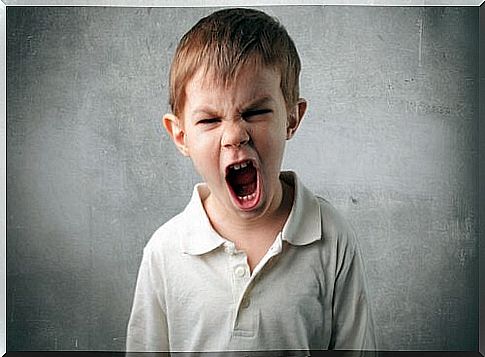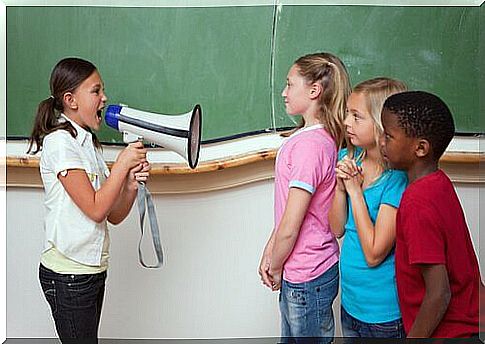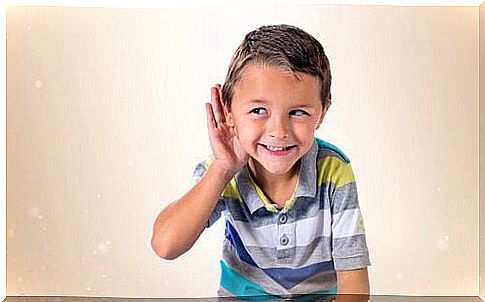7 Strategies To Teach Children To Control Their Impulses

Many childhood behavior problems are due to a lack of impulse control.
Learning to control your impulses is not easy, because the little ones have not yet fully developed their pre-frontal cortex, which is the part of our brain that takes care of it.
Since it is not easy for adults, why should it be for children?
Developing impulse control requires a variety of skills that must be started to learn as early as possible.
These are control skills that can be used a lot, right from the first social interactions.
Aggressive and ubiquitous advertising to speed up consumption makes it harder than ever to teach children to control their impulses.
Ultimately we are used to bringing instant reward and as an adult we love to receive them too.
In fact, the stimuli that surround us invite us to make quick decisions, without thinking, just to receive something in return, which will give us immediate pleasure.
Impulse control and success in school
Although success (or not) in school is not directly proportional to future success, it is evident that it can offer many opportunities for adulthood.
It can also facilitate the life of a child, his relations with his parents and in general, promote family cohabitation.

Regarding the topic that interests us, the fact that a child learns to control his impulses can help him to overcome important demands that generate stress (tasks, exams etc.), to learn to wait his turn, to learn to listen and learn to think before you act.
Knowing how to control impulses also promotes a child’s relationship with his peers, with his teachers and with other adults with whom he interacts in his educational setting.
In addition, impulse control helps a child know how to regulate himself when it comes to devoting time to study.
In fact, according to neuroscientists Sandra Aamodt and Sam Wang, self-control is twice as important as intelligence when it comes to academic performance.
Impulse control therefore also contributes to academic success according to these same neuroscientists, authors of the book Welcome to Your Child’s Brain .
Also know that children who can control their impulses are able to think about answers before writing them down and have better critical thinking skills at problem solving.
In addition, they can tolerate more frustration in solving problems.
Strategies for children to learn to control their impulses
Fortunately, impulse control can be learned and taught.
In fact, it is not something innate. It is possible to help children control their impulses when they are small without needing to suppress them, in a conscious and healthy way.
Let’s see some strategies to achieve this.
Learn to identify your own feelings
It is only when children are able to differentiate between feelings and behaviors that they can learn to control their impulses.
For example, when a child understands that it’s okay to feel upset but it’s not right to hit others or break things, they may see that there are options for dealing with their feelings. without reacting violently.
Develop listening skills
Sometimes children behave impulsively because they haven’t listened carefully, and before they listen to the whole sentence, they take action.
This is why it is fundamental for children to listen to instructions and ask to be told what they have been told before taking any action if they are not sure or if they did not understand what they were told.

Learn to manage and control anger
A low tolerance for frustration causes a large amount of behavioral problems.
This is why children should be taught to manage and control their anger so that they can calm down when they are upset.
It is quite possible to teach a child that he is able to calm himself down.
Offer him an appropriate role model
Your child will learn a lot more about impulse control in what he sees rather than what he is told.
In addition to teaching him a good driving style, explain to him how you manage your impulses when you have a problem.
Some additional strategies
Finally, here are some additional strategies you can use to help children learn to better control their impulses:
- Children must learn to solve the problems themselves. They must be able to identify the problems they face, value their choices and make decisions in a logical, thoughtful and consistent manner.
A child who is able to analyze a problem and think about his choices will not react impulsively.

- Set clear rules that show what is expected of them. A child who knows what to do has an easier time controlling his impulses when it comes to making a decision, especially when he clearly knows the consequences of breaking the rules.
- Organize your child’s physical activity. When children are physically active, they find it easier to manage their impulses.
Moderate physical activity, when outdoors, is especially helpful. Enroll them in competitive sports or games.
The competition is very healthy, as long as it is carried out in a controlled and supervised manner by professionals who defend and work for non-violence in sport, problem solving and good relations between opponents.









